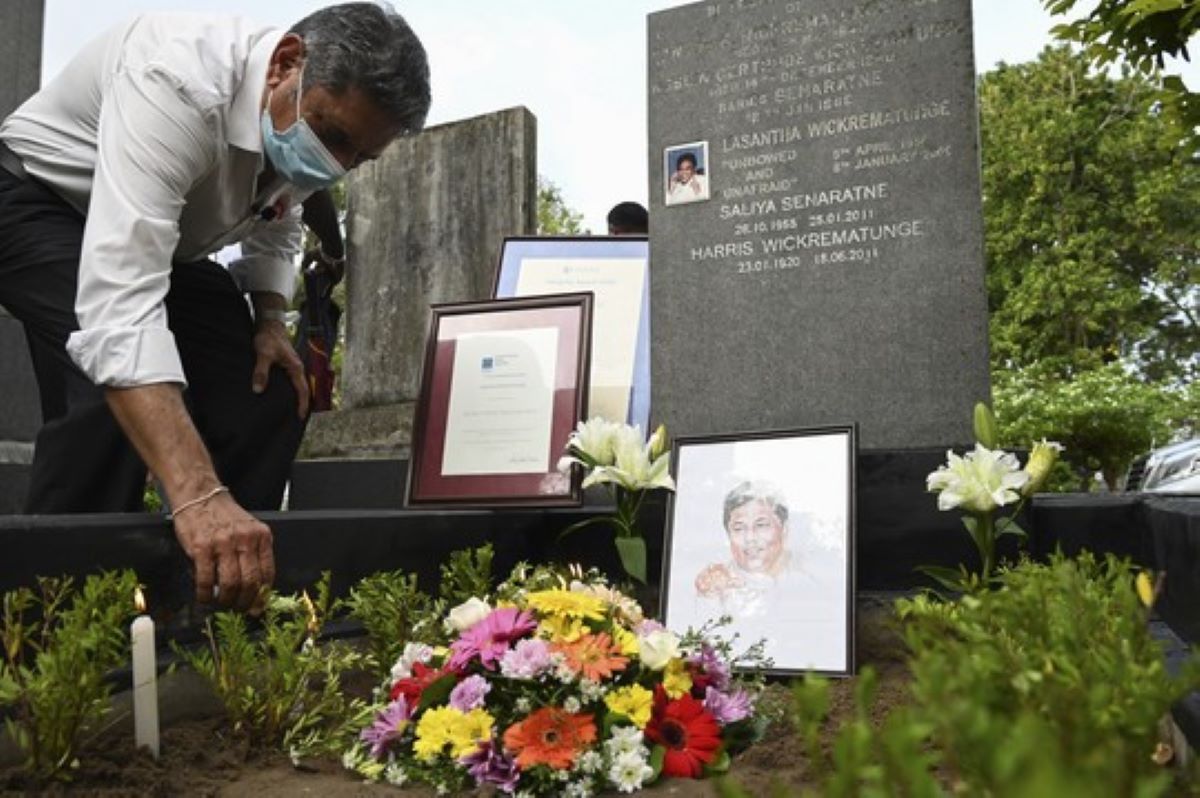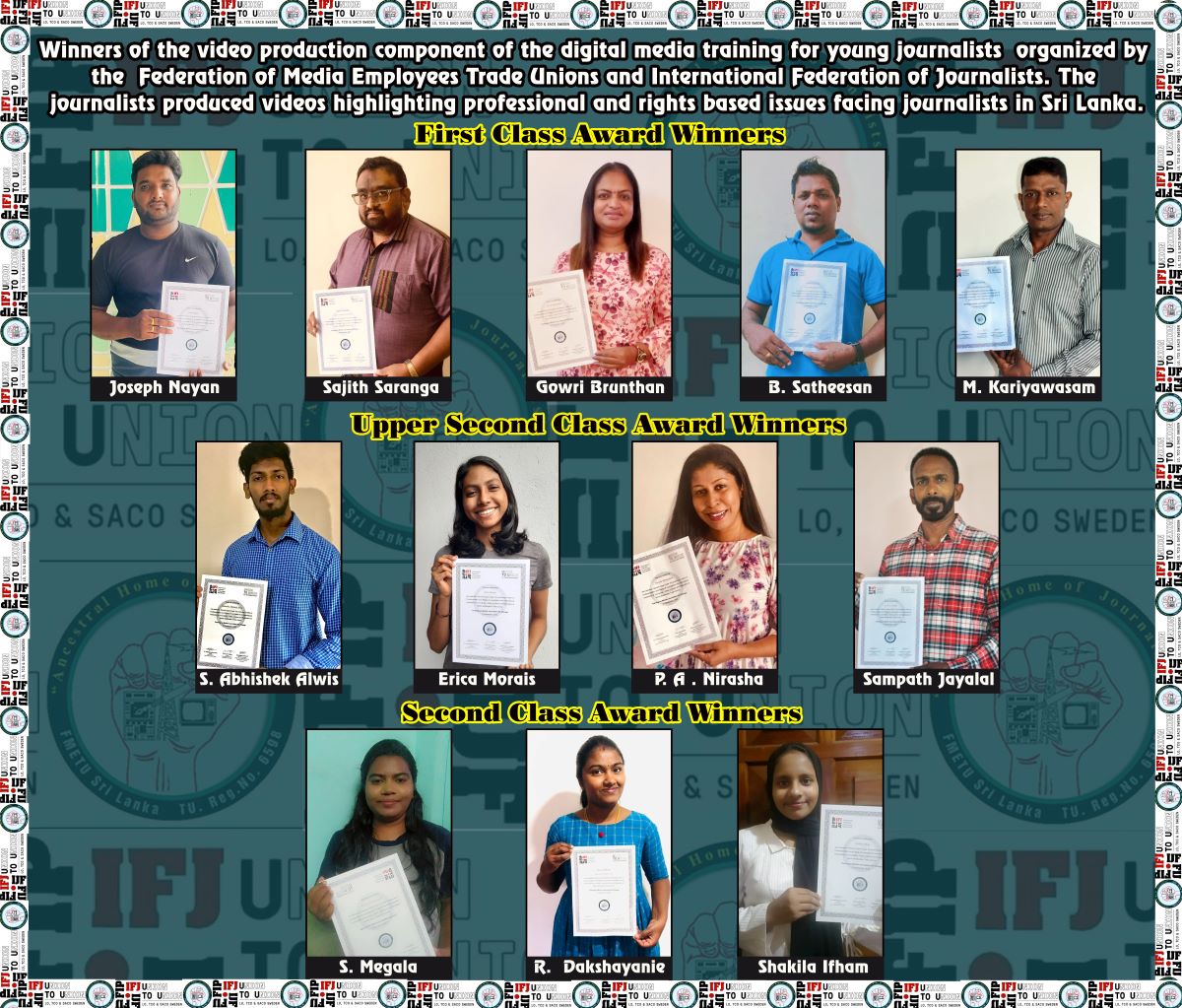Sri Lanka: Proposed anti-terror bill labelled tyrannical, undemocratic
The International Federation of Journalists issues the statement and its affiliates strongly condemn the proposed ATA and urges the Sri Lankan authorities to immediately withdraw the bill and amend the existing draconian PTA.”

The new Anti-Terrorism Act (ATA) proposed by the Sri Lankan parliament, designed to replace the existing Prevention of Terrorism Act (PTA) of 1979, threatens to further exacerbate restrictions on the right to assembly and gravely curtail freedom of expression and press freedom. The International Federation of Journalists (IFJ) joins its Sri Lankan affiliates, the Sri Lankan Working Journalists Association (SLWJA), the Federation of Media Employees Trade Union (FMETU), and the Free Media Movement (FMM), in strongly condemning the bill and urging Sri Lankan authorities to withdraw the proposed draft and repeal the punitive PTA.
On March 17, the Sri Lankan government announced its intention to replace the country’s current draconian terrorism act with the new ATA. The proposed legislation has been criticised by trade unions, human rights organisations, civil society, legal experts, and press freedom advocates, who have identified the bill’s potential to crack down on dissent and civic space amidst ongoing instability across the island.
The law would expand the legal definition of terrorist offences beyond international guidelines and include the infliction of serious damage to any place of public use, the obstruction of essential services, and participation in an unlawful assembly deemed by the government to be connected to ‘terrorism’. The law would also criminalise the distribution of materials or services that allow others to possess ‘terrorist publications’ and the publication of words or signs that may be understood by members of the public to conduct, encourage, or induce a terrorist offence, among many new and arbitrary charges.
Non-judicial detentions, previously only invocable by the Minister of Defence, could now be requested by a Deputy Inspector General Of Police, the third highest rank in the Sri Lanka police force. Abuses of power historically recorded under the PTA may be increased as law enforcement would be sanctioned to create ‘approved places of detention’ outside of Sri Lanka’s court structure, which has previously allowed for police torture of the arbitrarily detained. All arrests would occur before any formal charges were submitted.
Under the proposed ATA, the president would have the power to invoke proscriptive orders, restricting organisations labelled ‘terrorist’ from accessing funds or maintaining membership. The president would also have the power to order curfews, declare places ‘prohibited’, instate rehabilitation programs, and obtain restriction orders that prohibit movement and activities, all conducted outside of the court system. The Attorney General may also compel those charged under the ATA to produce guilty testimonies, as the AG may relieve an individual charged under the act for up to 20 years if they conduct conciliatory actions.
The legislation has been announced after decades of local and international criticism surrounding human rights abuses, often directed towards journalists, and ethnic and religious minorities, that were conducted under the PTA by successive Sri Lankan governments. According to Prime Minister Dinesh Gunawardena, the bill is expected to be presented to the Sri Lankan Parliament in late April and could come into law as early as May 2023.
Dharmasiri Lankapeli, the General Secretary of the FMETU, said: “This so-called Anti-Terrorism Act (ATA) has provisions more draconian and tyrannical in nature compared to its predecessor PTA. […] The government has been compelled to put off the presenting of the ATA bill to Parliament due to vehement opposition by people, including lawyers’ organizations, civil organizations, trade unions, and media organizations. We, the FMETU, call on all those who uphold the values of democracy and rule of law to rally against this government’s attempt to arm itself with oppressive powers against people.”
The FMM said: “Although the national security of a country is an essential issue for the sovereignty, territorial integrity and security of the citizen, Free Media Movement strongly condemns the government’s imposition of laws to deprive citizens of freedom of expression and speech under the guise of national security. The Free Media Movement raised its voice against the cases where the government tried to violate the freedom of expression of the citizens through the arbitrary laws brought by the government earlier, such as the Prevention of Terrorism Act. The Free Media Movement recognizes that many of the inhuman and arbitrary clauses in the proposed Anti-Terrorism Act are preventing citizens, especially human rights activists, from expressing their free opinion and criticizing the mal behaviour of state institutions.”
The SLWJA said: “The SLWJA expresses grave concern regarding the Government of Sri Lanka’s proposed Anti-Terrorism Act (ATA). The SLWJA believes that the proposed ATA is even more dangerous than the PTA as it could label, delegitimise, and ultimately dehumanise those the government considers to be its political enemies. The SLWJA urges the Government of Sri Lanka to engage in meaningful dialogue with civil society and the international community to address the concerns regarding the proposed ATA.”
The IFJ said: “The proposed Anti-Terrorist Act is a condemnable and dangerous alternative to the already flawed PTA, threatening to further undermine freedoms of expression, press, and assembly in Sri Lanka. If passed, journalists, media workers and their representative unions and organisations who are deemed critical of the Sri Lankan government face legal persecution under undemocratic and arbitrary ‘terrorist activities’. The IFJ strongly condemns the proposed ATA and urges the Sri Lankan authorities to immediately withdraw the bill and amend the existing draconian PTA.”










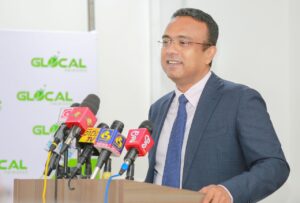


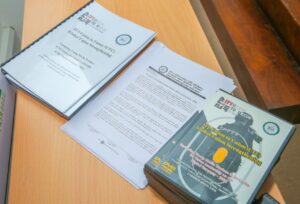
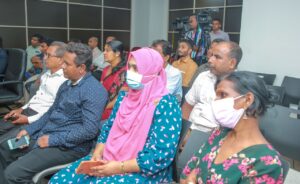
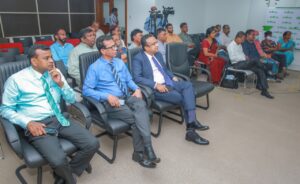




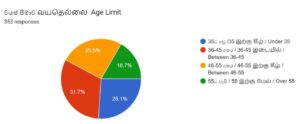 Currently, 26% of the journalists working in the media industry are under the age of 35. About 31% are between the ages of 35 and 45, and 25% are between the ages of 45 and 55. 16% of journalists are over the age of 55 years.
Currently, 26% of the journalists working in the media industry are under the age of 35. About 31% are between the ages of 35 and 45, and 25% are between the ages of 45 and 55. 16% of journalists are over the age of 55 years. Most of these journalists have got through the GCE Advanced level examination. In terms of percentage, it is 36%. Also, 19% have studied up to GCE O Level and 28% are Diploma holders. 9% of the journalists have university degrees.
Most of these journalists have got through the GCE Advanced level examination. In terms of percentage, it is 36%. Also, 19% have studied up to GCE O Level and 28% are Diploma holders. 9% of the journalists have university degrees.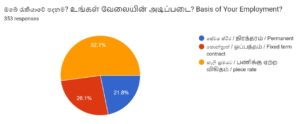 1% of these journalists are employed on a permanent basis. Out of these, only, 14% of them have prospects of a promotion scheme. About 52% of journalists are employed on a piece-rate basis and another 26% are employed on a contract basis. Moreover, it has been confirmed that about 86% of journalists have no promotional prospects.
1% of these journalists are employed on a permanent basis. Out of these, only, 14% of them have prospects of a promotion scheme. About 52% of journalists are employed on a piece-rate basis and another 26% are employed on a contract basis. Moreover, it has been confirmed that about 86% of journalists have no promotional prospects. of the Employees’ Provident Fund, or the Employees’ Trust Fund, service gratuities, and bonuses that are enjoyed by employees in most other sectors.
of the Employees’ Provident Fund, or the Employees’ Trust Fund, service gratuities, and bonuses that are enjoyed by employees in most other sectors. journalists have received appointment letters from their employers. There are 31.2% of journalists without appointment letters. It has been found out that
journalists have received appointment letters from their employers. There are 31.2% of journalists without appointment letters. It has been found out that the letter of renewal of service is considered by them to be the letter of appointment. 78.2% of the journalists have a media identification card and 21.8% do not have an identification card.
the letter of renewal of service is considered by them to be the letter of appointment. 78.2% of the journalists have a media identification card and 21.8% do not have an identification card.